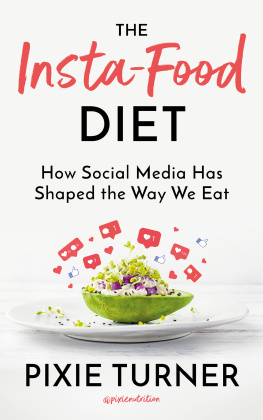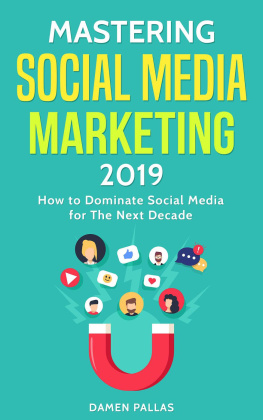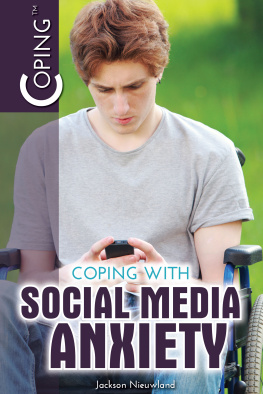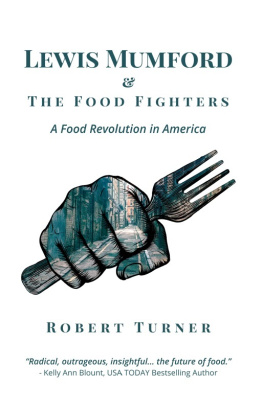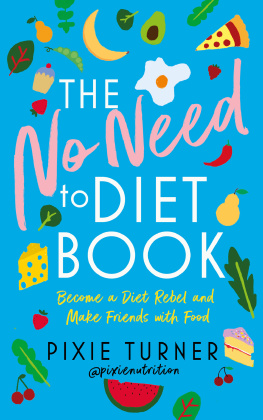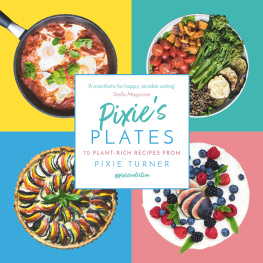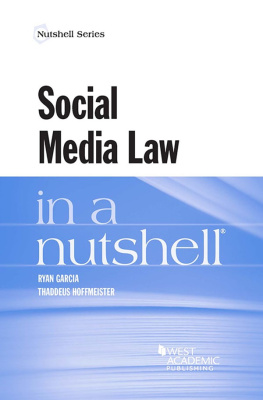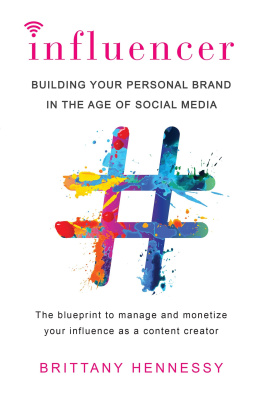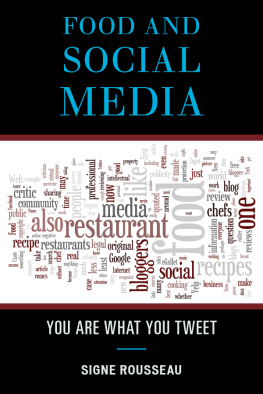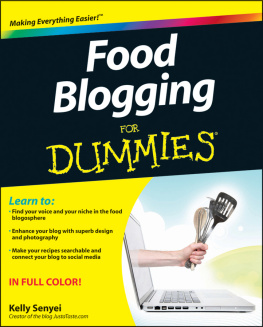THE
Insta-Food
DIET
The Wellness Rebel
Pixies Plates
The No Need To Diet Book
THE
Insta-Food
DIET
PIXIE TURNER
AN ANIMA BOOK
www.headofzeus.com
This is an Anima book, first published in the UK in 2020 by Head of Zeus Ltd
Copyright Pixie Turner, 2020
The moral right of Pixie Turner to be identified as the author of this work has been asserted in accordance with the Copyright, Designs and Patents Act of 1988.
All rights reserved. No part of this publication may be reproduced, stored in a retrieval system, or transmitted in any form or by any means, electronic, mechanical, photocopying, recording, or otherwise, without the prior permission of both the copyright owner and the above publisher of this book.
A catalogue record for this book is available from the British Library.
ISBN (HB): 9781788547185
ISBN (E): 9781788547208
Design: Steve Leard
Images: MAIKA 777/Getty
Head of Zeus Ltd
58 Hardwick Street
London EC 1 R 4 RG
WWW . HEADOFZEUS . COM
CONTENTS
For my father, who loved food and didnt really get the whole social media thing.
The very first food picture I posted on Instagram was taken back in 2012. It featured a salad bowl with a heavy filter, terrible yellow lighting and harsh shadows; it received very little attention or praise. Since then, I have posted thousands of food pictures online, and deleted several hundred along the way. Some tasted so awful I couldnt eat them, some were dishes other people had ordered, some were bulked up to give the illusion of quantity, some were aesthetically pleasing yet boring, and others were incredibly delicious and attractive. Many gained me hundreds of new followers, and one or two have lost me several thousand followers overnight. Food is an incredibly polarising topic, and social media has given each of us huge power to use and abuse this.
Ive been posting about food on social media for over eight years now. During my first year my account was private, then I found #cleaneating and created a public wellness account that gained me over 80,000 followers in the space of two years. After that, I turned my back on the obsessive cult of Instagram wellness, and since 2015 I have been using my platforms as a tool for science communication.
The twenty-first century marked the emergence and growth of social networking sites that have since become a major part of peoples lives. Few of us can imagine life without social media anymore, and its unrealistic to assume that its even possible.
There is a clear and growing body of research pointing to a link between social media use and mental health issues including depression, anxiety and eating disorders. We are starting to become more aware of the negative implications of social media, but we struggle to really accept these implications because in the immediate moment when we go online it lifts our mood. The negative effects come with more prolonged use.
, 89% of social media users said that getting plenty of likes on their pictures and posts makes them feel happy, but for 40% of them the happiness stops when the likes do. Only around 10% of people will carry that happiness for the whole day.
Social media may have had a huge effect on society its here now and its here to stay but something that was supposed to be fun has, for many of us, turned into a source of stress and anxiety. And yet so few of us are able and willing to step away from it. We say, I wish I could stop scrolling, clearly expressing a desire at least to reduce our time online, and yet we feel unable to do so.
Why is that? Well theres a clear answer: social media is where everyone is.
Everybody is online
In case it isnt clear: in this book, I will be using social media to describe the platforms of Facebook, Twitter, Instagram, Pinterest and YouTube. Blogs will get a mention too. These are platforms that allow users to create personal profiles, form connections and communicate with others, create and share content, and access searchable online content posted by others. They are also the biggest social media platforms out there. Facebook is the largest with over 2 billion users, YouTube has 1.9 billion and Instagram just over 1 billion. In total, there were 3.48 billion social media users in 2019 thats a lot of people. In fact, that equates to around 45% of the current world population.
, with an average of 35% across all age groups. So, clearly, many of us realise were spending too much time online, which is good news. The bad news is that we are not managing to moderate our use effectively. Only 14% of people who are trying to control their usage feel they are successfully doing so, and most are taking no steps at all, despite explicitly stating they would like to.
Can we call social media addictive? Lets look at some of the stats:
, which is around a third of their total Internet time.
The average mobile phone user touches their phone 2,617 times per day, with the top 10% touching their phone 5,427 times.
Data by Apple shows that the average user with Touch ID unlocks their iPhone every 11 minutes and 15 seconds.
OK, its still clear were using our phones a little too much perhaps. But is it addictive? Here are some more stats:
75% of smartphone users admit to using their phones while on the toilet, whether out of boredom or because they cant bear to part from it.
45% feel they need to constantly check their phone, or are distracted by their phone while completing a task.
.
.
Now this is starting to look a little more concerning. At this point I want to point out that its easy to think this doesnt apply to us, that were definitely on the low end of that. And you might be. But I challenge you, just for a day, to track how many times you pick up your phone, unlock it, stare at it and scroll most phones let you view daily screen time, and the results may surprise you.
Looking at those stats you might immediately think yep, social media is definitely addictive, but its worth digging a little deeper and examining both sides.
, who joined Facebook when it was just five months old, claimed in a 2017 interview with Axios that social media was designed to consume as much of your time and conscious attention as possible. When the creators themselves are using this language, surely it must have been intended to be an addictive activity?
How many times have you seen a notification appear on your phone and immediately felt compelled to find out what it is? How often have you opened an app just to have a quick look, and then 20 minutes later youre still scrolling and reading? Do you feel the need to check all your social media apps systematically rather than stopping at just one? I do. First thing in the morning I start with emails (just viewing, not sending), then Twitter, followed by Facebook and ending on Instagram. Every morning. I do all of these things, and it feels automatic.
throughout the platform, and it was hugely successful. Peoples engagement with Facebook increased dramatically following its introduction, and it gave Facebook valuable data about our likes and dislikes, which can be sold to advertisers. The idea was such a success its since been adopted by Twitter in the form of the heart button, and by Instagram, again as a heart double tap to like!
For an app, generating more users isnt good enough anymore: they want loyal ones. Finding ways to get users to spend more time on social media means more ad revenue and more profit for these companies. Of course they want to keep you hooked.

